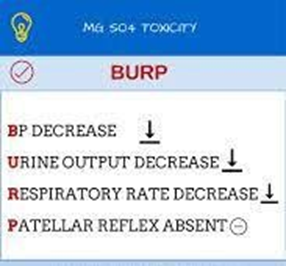You are working in the labor and delivery unit, you received several nursing reports.
Which patient should you assess first?
Select one:
A 27-year-old G2P1 woman at 37 weeks' gestation who experienced spontaneous rupture of membranes 30 minutes ago but feels normal fetal movements and not contractions are noted.
A 22-year-old. 9cm 100% +4. Who is requesting to go to the bathroom to have a bowel movement
A 32-year-old G4P3 woman at 27 weeks' gestation who noted scan vaginal bleeding today, after of having a sexual intercourse in the morning.
A 17-year-old. 2cm 80% -2. Who is crying and shows mild anxiety
The Correct Answer is B
a. A woman at 37 weeks' gestation who experienced spontaneous rupture of membranes 30 minutes ago with normal fetal movements is not a priority assessment as long as there are no signs of fetal distress.
b. A woman who is 9 cm dilated and fully effaced and is requesting to go to the bathroom to have a bowel movement is in the second stage of labor, which means that the cervix is fully dilated and the fetus is descending in the birth canal. The urge to have a bowel movement is a sign that the fetal head is pressing on the rectum and that delivery is imminent. This patient needs immediate attention and preparation for delivery.
c. A woman at 27 weeks' gestation who noted scant vaginal bleeding today after having sexual intercourse in the morning may be experiencing placenta previa or placental abruption but this is not a priority compared to the woman in option b who is yet to deliver.
d. A woman who is 2 cm dilated and 80% effaced and is crying and shows mild anxiety is not a priority assessment as long as there are no signs of fetal distress.
Nursing Test Bank
Naxlex Comprehensive Predictor Exams
Related Questions
Correct Answer is D
Explanation
a. This is not the correct diagnosis for this situation.
b. This is not the correct diagnosis for this situation.
c. This is not the correct diagnosis for this situation.
d. The sudden onset of increased contraction frequency, dark red vaginal bleeding, and severe abdominal pain are characteristic of placental abruption.
Correct Answer is B
Explanation
a. This is an important nursing intervention when a patient is receiving magnesium sulfate, as the medication can affect renal function.
b. Assessing cervix dilation is not related to magnesium sulfate toxicity.
c. This is an important nursing intervention when a patient is receiving magnesium sulfate, as the medication can affect neuromuscular function.
d. This is an important nursing intervention when a patient is receiving magnesium sulfate, as the medication can affect respiratory function.

Whether you are a student looking to ace your exams or a practicing nurse seeking to enhance your expertise , our nursing education contents will empower you with the confidence and competence to make a difference in the lives of patients and become a respected leader in the healthcare field.
Visit Naxlex, invest in your future and unlock endless possibilities with our unparalleled nursing education contents today
Report Wrong Answer on the Current Question
Do you disagree with the answer? If yes, what is your expected answer? Explain.
Kindly be descriptive with the issue you are facing.
